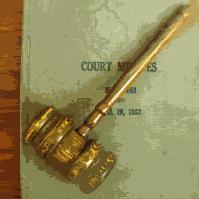Libel [2]
Defamation
Defamation is the overarching term for making false and potentially harmful assertions about people.
The communication of a false statement that seriously harms the reputation of an individual, business, product, group, government, religion, or nation. Most jurisdictions allow legal action to deter various kinds of defamation and retaliate against groundless criticism.
http://en.wikipedia.org/wiki/Defamation
Libel
Libel relates to when these (defamatory) assertions are made in a recorded medium (including on the web):
A malicious, false statement in written media, a broadcast, or otherwise published words.
http://en.wikipedia.org/wiki/Libel_%28disambiguation%29
Libellous gossip, defamation, slanderous and bullying comments can readily be recorded and circulated via screen-shots. If this happens to you, always take and keep a screenshot record as evidence, before reporting it to the platform or the police. Words are potentially widely published and amplified on social media.
 Similar to all other broadcast and print media, any material published online in the UK - is subject to defamation, privacy and contempt laws and could even be a racism or terrorism offence. Whether you are writing on Facebook, blogging or simply a hot headed Tweeter, you do need to think twice before you publish your words online. The only way to ensure you are not committing an offence online is to totally avoid posting gossip unless you know for a fact that it is true - and even then, ask yourself, is that the impression you want people to have of you?
Similar to all other broadcast and print media, any material published online in the UK - is subject to defamation, privacy and contempt laws and could even be a racism or terrorism offence. Whether you are writing on Facebook, blogging or simply a hot headed Tweeter, you do need to think twice before you publish your words online. The only way to ensure you are not committing an offence online is to totally avoid posting gossip unless you know for a fact that it is true - and even then, ask yourself, is that the impression you want people to have of you?
The Defamation Act 2013 makes it necessary to prove that a statement caused, or was likely to cause, serious harm to the complainant's reputation.
Businesses can now sue only if a statement caused, or was likely to cause, serious financial loss.
The new Act introduced a requirement for a 'report and remove' process that can be used by people if they believe they have been defamed on a website message board. So, familiarise yourself with the process of how you would report and remove any potentially damaging statements made about you.
It is necessary to prove that any statement caused, or was likely to cause, serious harm to your reputation, with a one-year time limit for starting web libel actions - commencing when an article is first published online. It is no longer the case that it re-starts every time an article is viewed, or downloaded.